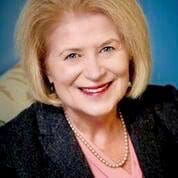Search Posts
Recent Posts
- Vinny Paz to be inducted TODAY into the International Boxing Hall of Fame – CES Boxing June 7, 2025
- In the News… quick recap of the week’s news (6.7.25) June 7, 2025
- Burn with Kearns: Strong without the spend: How scraps became strength tools – Kevin Kearns June 7, 2025
- Rhode Island Weather for June 7, 2025 – Jack Donnelly June 7, 2025
- How to advocate for threatened properties: The Heritage Alliance of Pawtucket June 7, 2025
Categories
Subscribe!
Thanks for subscribing! Please check your email for further instructions.

The New Pandemic: Deaths of Despair and the Rise of Mental Health Problems
By Mary T. O’Sullivan, MSOL
“People are resilient until they’re not.” – Business Insider
In mid-March, two nurses in New York City committed suicide after weeks of treating desperately ill and dying COVID-19 patients. More recently, a well-known ER doctor in New York also took her own life, as did a 23-year-old paramedic, only on the job for just a few months. For the rest of us, social isolation and the anxiety that goes along with it are also causes for concern. Suicides and deaths from drug and alcohol abuse are rising along with the COVID death toll. A university research team collected thousands of surveys indicating that among adults, there is a marked increase in suicidal thoughts during the last two months. Another research organization, The Well Being Trust, estimates tens of thousands of “deaths of despair” will take place as a result of exposure to the stress and overwhelming emotions of the COVID-19 pandemic.
Death is not the only scary part of social isolation. Domestic violence has raised its ugly head with women and children locked down in the same space as their abusers. The truth of the matter is that domestic violence calls have decreased, not because there is less violence, but because victims are trapped in their homes, with no way to privately communicate with the outside world. I can’t imagine being locked down in a violent household, desperate for any possible way to escape the cruelty perpetrated at a place supposed to be your home. Culturally, women and girls are particularly vulnerable to domestic violence across the world, in fact a recent study shows that one third of the women around the world have suffered some form of domestic violence during the COVID lockdown. In some southern states in the US, the isolation caused a surge in alleged child abuse cases. With schools, churches and social programs shut down, women and children have nowhere else to go. According to the New York Times, New York Governor Andrew Cuomo said his state “is seeing a rise in drug use, alcohol consumption and domestic violence.”
With all these signs of mental health issues, what makes people avoid seeking support? In short, why are people reluctant and resistant to ask for help? Mental health professionals are taking note of the high risk to our frontline workers. For our healthcare workers, it appears that fear of being stigmatized discourages doctors, nurses and other medical professionals from admitting they can’t go on. A COVID nurse from Long Island put it this way:
“They were coming in very sick and deteriorating so fast. I was carrying a lot inside me, and I was very sad when I came home. I was feeling like I wasn’t doing a good job. My mother-in-law is a nurse, and she saw I needed help, so she connected me with a therapist.” — Kristina, a nurse at Long Island Jewish Medical Center in Queens
With similar concern, Dr. Jay Kaplan a New Orleans ER physician, states, “We need to break the culture of silence and let people know it’s OK not to have it all together all the time.” For paramedics, EMTs, firefighters and police, the “warrior” mentality may explain some of the resistance to seeking help. “The ‘warrior culture’ sees itself as a tough, invulnerable caste. Asking for help, admitting fear, is not part of their self-image”, says a longtime EMT veteran. Another long-time paramedic tells Business Insider, “I’m fighting this war against an enemy that’s going around randomly killing people, and it makes me feel hopeless. How do I shake that?”
With pandemic lockdown conditions, how do we address the domestic violence issue? Courts are closed, schools and churches are shut down, what can these vulnerable people do to avoid the daily violence in their lives? According to the Joint Base San Antonio News, families must have a backup plan. Have a “safe room” in the plan, and make sure kids know how to dial 911. Ask that schools stay in touch with the family, use social media to ask for help through messaging, and according to one source, if you must escape the perpetrator, leave the premises. Your safety is most important.
With all these incidences of despair around us, the question still persists, how do we overcome the stigma of getting help? While people take on the struggle, expose themselves to PTSD, adopt the “get over it” philosophy, and try to “hang tough”, inside, these same “heroes” are beginning to crumble. Eventually, they just fall apart, become suicidal, turn to drugs, alcohol and sometimes food, lose sleep, feel fatigued, worry constantly, have unexplained headaches, and other signs of stress. How do we move these folks to admitting they need help?
Ironically, many mental health organizations are offering free services to any of these people. There are free hotlines, free websites, all kinds of free ways to connect. In fact, the International Coaching Federation has loosened its requirements for paid coaching so that trained life coaches can support the mental health of our doctors, nurses and front-line workers. When I chat with many of my coaching collogues, I am surprised to learn that they are not receiving calls. We’re another service that willingly supports our heroes on the frontlines. In fact, ICF has partnered with WiseHer to provide free coaching hours to all frontline COVID workers, and is increasing the number of pro bono hours allowable for accreditation renewal in support of these brave folks. Please connect with me directly if you know of someone who is on the edge and can use some stress relief support. Mary@encoreexecutivecoaching.com
Psalm 23: “Yea, though I walk through the valley of the shadow of death, I will fear no evil: for thou art with me.”

Mary T. O’Sullivan, MSOL, PCC, SHRM-SCP
147 Francis Horn Drive, Kingston, RI, 02881
mary@encoreexecutivecoaching.com
www.encoreexecutivecoaching.com
401-742-1965
Mary T. O’Sullivan, Master of Science Organizational Leadership, International Coaching Federation Professional Certified Coach (ICF-PCC), Society of Human Resource Management Senior Certified Professional (SHRM-SCP). Graduate Certificate in Executive and Professional Coaching, University of Texas at Dallas. Member Beta Gamma Sigma, the International Honor Society. Advanced Studies in Education from Montclair University, SUNY Oswego and Syracuse University. Mary is also a certified Six Sigma Specialist, Contract Specialist, IPT Leader and holds a Certificate in Essentials of Human Resource Management from SHRM. Mary is also an ICF certified Appreciative Inquiry Practitioner, and a Certified EQi-2.0 and EQ360 Practitioner.
Mary O’Sullivan has over 30 years’ experience in the aerospace and defense industry. In each of her roles, she acted as a change agent, moving teams and individuals from status quo to new ways of thinking, through offering solutions focused on changing behaviors and fostering growth. In addition, Mary holds a permanent teaching certificate in the State of New York for secondary education and taught high school English for 10 years in the Syracuse, NY area. Today, Mary dedicates herself to helping good leaders get even better through positive behavior change.
